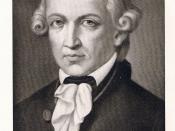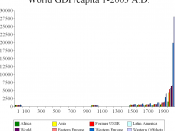�PAGE �
The Theory of Democratic Peace
The theory of democratic peace argues that nation-states governed by democratic regimes do not tend to have conflicts with other democratic countries. This theory suggests that democracies never or rarely go to war with each other. Political scientists debate this theory and express opposing viewpoints to the question: do democracies fight each other?
Among the proponents of the theory, several explanations have been offered for it: First, democracies are said to view non-democracies as threatening making it more likely to go to war with them; unlike a fellow democratic nation where a conflict would be solved peacefully. War is often considered to be inconsistent with democratic values. Democracies do not fight one another because it is morally and ethically the wrong thing to do. Second, democratic leaders must answer to its voters. This policy gives leaders an incentive to seek peaceful resolutions. Third, democratic nation-states are often more well off or wealthier than non-democratic nations.
Wealthier nations tend to avoid war because there is more to lose. And fourth, democracies trade heavily with each other making the will to go to war less likely. There would be no real gain for either nation. Also, in their foreign relations, nations will try to follow the same norms of conflict that characterize their domestic political processes. They expect the other side to resolve disputes through compromise and nonviolence.
Thomas Paine appears to be the first person to describe the theory of democratic peace in Common Sense, written in 1776. Paine re. According to Paine Kings would declare war to in an effort to command respect and republics would not. In 1795, Immanuel Kant suggested the theory of democratic peace in his essay, Perceptual Peace. Kant believed that republics lack aggressors and that governments...


